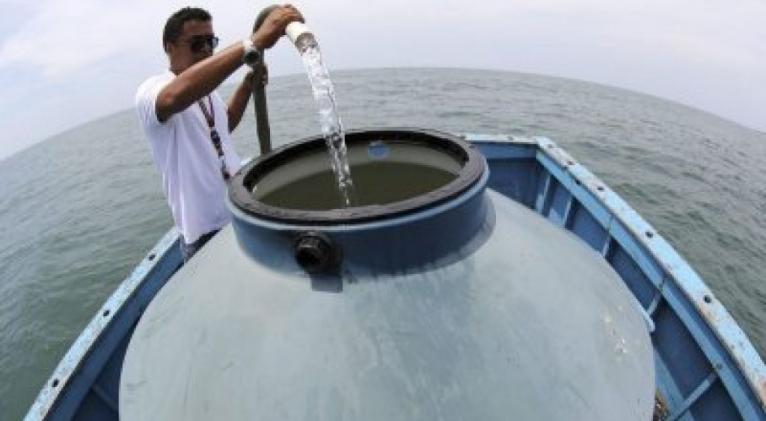The world will face a massive water shortage in 15 years unless we start changing our consumption habits
especiales

Competition for water between water-thirsty sectors means better management is essential to ensure everybody gets the water they need, said the World Water Development Report.
With “business as usual” the world is facing a “collapse in our global socioeconomic system,” Richard Connor, lead author of the report, told the Thomson Reuters Foundation.
By 2050 two thirds of the world’s population will be living in cities and demand for water is expected to increase by 55 per cent, mainly from demands related to growing urbanization in developing countries.
Urbanization means that access to safe water and adequate sanitation, although typically higher in cities, has decreased in the fastest growing urban areas.
One example is sub-Saharan Africa, where urbanization — often unplanned — is happening most rapidly. Here the proportion of people who have piped water on their premises has fallen to 34 per cent from 42 per cent since 1990.
“The spontaneous urbanization, which creates slums, makes it very difficult because of the layout of the slums to provide water,” Joan Clos, executive director of the United Nations Human Settlements Programme (UN-HABITAT), told the Thomson Reuters Foundation in a phone interview from Nairobi.
“Once you have a street then for the water operator it becomes very easy to reach the plots.”
MORE PEOPLE, MORE FOOD
By 2050 the world will have to produce 60 per cent more food and the global water demand for industry is predicted to increase by 400 per cent, said the report, published ahead of World Water Day on March 22.
The growing population will also need 70 per cent more energy and water is required to produce almost all forms of it.
“You have to manage water. If you’re using less water because of your proper irrigation and soil management in agriculture that allows more water to be available for other users,” Connor said.
“Every sector has to pitch in and do its best to be water efficient.”
Investing in sustainable water management, although costly, pays off: a $US15 to 30 billion invested in improved water resources management in developing countries can have an annual income return of $US60 billion, the report said.
“Over the long term investing in water and sanitation is cost-effective. That is the convincing argument that it’s not just to help the poor, it’s actually good business,” said Connor.
Cities with long-term water plans will have more robust economies within decades, he said, because people who have access to clean water are healthier and have a better chance of getting educated and finding jobs.
(Reporting by Magdalena Mis; Editing by Ros Russell)













Add new comment